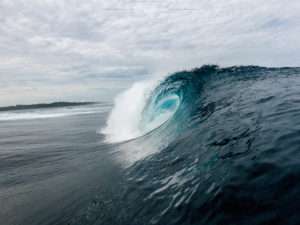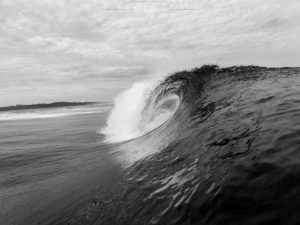Hello all!
As we’re approaching summer time, the world is in the grip of what be seen as ‘entertainment politics’. Theresa May’s pre-Brexit gamble didn’t pay off, Trump exited the Paris agreement for no clear reason, and Macron used this again to his advantage. This is politics in the time of instant gratification. It is, however, far from the good governance we need to address the real issues. In this article I’ll discuss the nature of the ‘great divide’ we have recently seen in the world through two lenses: economics and psychology – and the role our future leaders will have to restore this balance.
Let’s start with economics of the story, or how we create and divide value in our societies. One of the most telling graphs is the ‘smiling curve‘; showing a trend that has ‘flipped’ upside down in recent years within advanced economies, sparking lots of unrest. This graph was famously used by Stan Shih, the founder of Acer computers, to explain the future he envisioned. It shows that for advanced economies, less and less value generally lies in the manufacturing of products, instead this value is to be found at the outskirts of the curve (R&D, advertisement, services etc.). Bringing back manufacturing jobs to advanced economies therefore is often seen as a delusional idea used by politicians to gain popularity; those ‘homegrown’ factories will in reality have a hard time competing with ‘more global’ value chains.
The second graph below is equally famous in the world of economists, and is known as the ‘elephant graph‘ by Branko Milanovic. It could well be described as the result of the smile curve. The elephant chart shows the gain in real income for groups in society (note: US data) in the last decade. Note that this is quite positive for most groups, except the spot around the 80th-85th percentile (where the elephant trunk hits the ground and real income gains have not materialized). This spot is mostly made up of the ‘lower half of the income distribution’ in our countries; many former factory workers are located here. For them, the rising tide has not helped to lift all boats.
So, how does this story impact people psychologically? Depending on where you are on the elephant curve, chances are you have a very different perception of today’s reality and the system you live in. And chances are that you are right in your own regard (and for the social group you represent). The most striking example of this belief difference was the analysis of Pew Research Center; who checked the world view of Trump vs Hillary supporters. Astonishingly, 81% of Trump supporters believed today to be worse than the past, and 68% believed the future even worse. For Hillary supporters, these numbers were only 19% and 30% respectively. In short, these groups saw a completely different world. Who is right here? Astonishingly, both groups were in some ways.
To sum it up: we live in a world that is increasingly divided, both economically and psychologically. As Nobel Prize winner Milton Friedman has argued repeatedly in the past, political and economic cannot be seen as separate entities, and modern day psychologists would include psychological freedom in that equation. The challenge for future leaders is to break these trends and bridge the divide. They will have to do so both in economical terms, as well as in the psychological experience of people.










